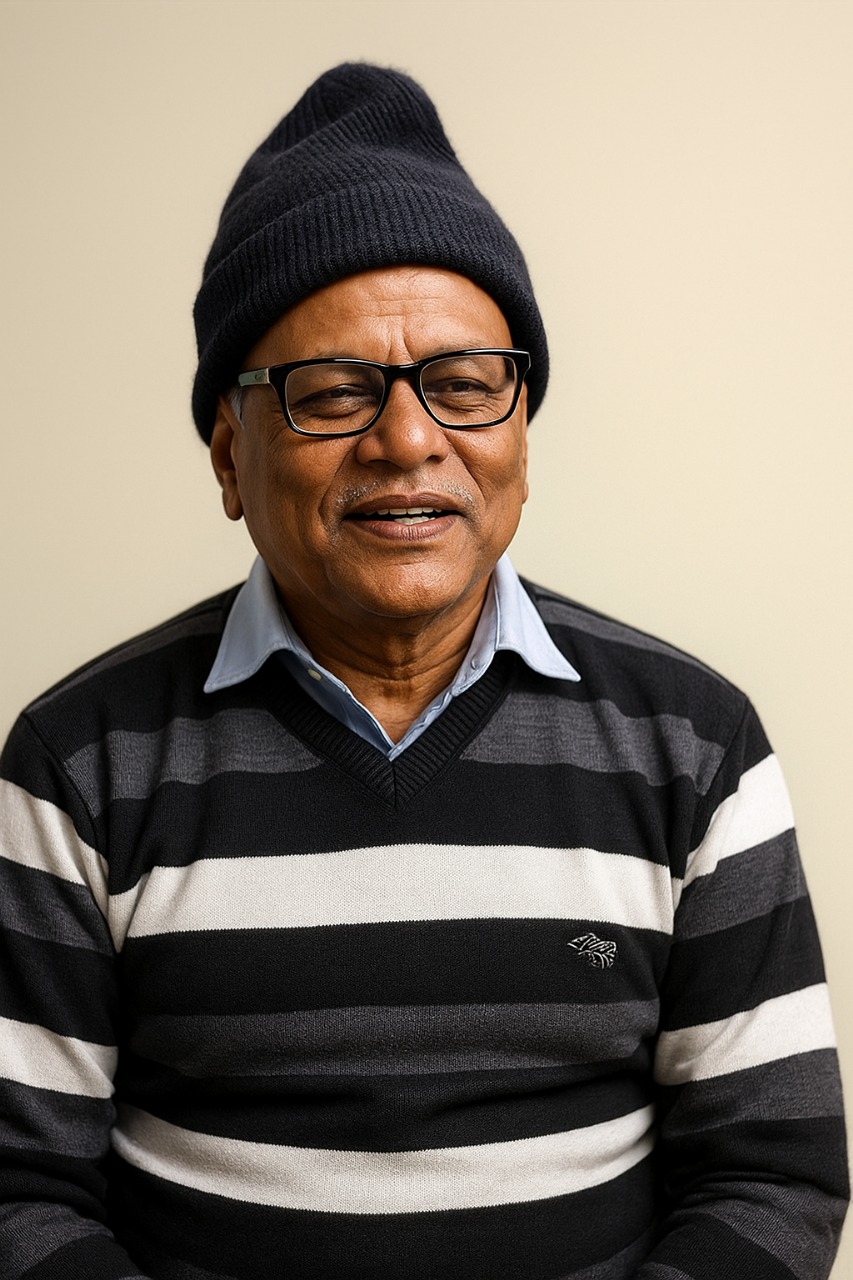Reading time : 2 minutes
In the culturally rich and diverse landscape of Assam, few voices have resonated as powerfully and compassionately as that of Hafiz Ahmed. A teacher, poet, author, and social activist, Hafiz Ahmed has dedicated his life to shaping the narrative of his community while building bridges of understanding across Assam’s social and linguistic fabric. His journey is one of resilience, creativity, and an unwavering commitment to dignity—both personal and collective.
Born and raised in the riverine areas of Barpeta Assam regions known as Char Chapori Hafiz Ahmed grew up witnessing the daily struggles of communities battling poverty, displacement, and a lack of educational opportunities. These formative years instilled in him a deep sense of responsibility. Instead of distancing himself from these hardships, he turned them into his motivation. As he grew into a teacher, he stepped into classrooms not just to impart knowledge, but to inspire confidence among children who often felt voiceless and unseen. His presence in the education sector became a pillar of hope for many families living in geographically and socially fragile regions.
But Hafiz Ahmed’s influence extends far beyond the classroom. He emerged as one of the most prominent literary figures to highlight the experiences of the Miya community—Assamese Muslims of Bengal-origin through a powerful genre now widely known as “Miya poetry.” With simple yet evocative words, Miya poetry reflects themes of identity, citizenship, belonging, discrimination, and aspiration. It speaks both the pain and pride of a community often stereotyped or misunderstood. Hafiz Ahmed’s pioneering role in this literary movement has not only garnered national and international attention, but has also created a platform for countless young poets and writers to express themselves fearlessly.
Through Miya poetry, Hafiz Ahmed challenged long-standing narratives and boldly inserted the voices of his people into the mainstream literary discourse of Assam. He transformed poetry into a tool of empowerment one that educates, inspires, and unites. What began as a small initiative soon evolved into a cultural movement that encouraged introspection, dialogue, and empathy across communities.
Alongside his literary contributions, Hafiz Ahmed has also taken on leadership roles aimed at building cultural and linguistic harmony in Assam. As the leader of the Char Chapori Literary Council, he has worked tirelessly to promote the Assamese language among the Miya community while simultaneously highlighting their own rich cultural heritage. His efforts have helped bridge gaps of mistrust and misunderstanding, reinforcing the idea that identity is not a barrier but a beautiful tapestry of shared traditions and languages.
Under his guidance, literary events, workshops, training sessions, and cultural activities have flourished across Char Chapori regions, empowering youth to take pride in their language and roots. His mission is not merely to preserve culture, but to cultivate confidence and unity. He envisions a future where communities marginalized for decades can claim their rightful space in Assam’s collective narrative.
Hafiz Ahmed’s work has not been without challenges. Critics have at times misunderstood or misrepresented his intentions. Yet he has always responded with calm dignity, choosing dialogue over confrontation and creativity over silence. His strength lies in his conviction that positive change emerges from empathy, education, and expression not from division.
Today, Hafiz Ahmed is widely respected as a symbol of peaceful resistance, cultural integration, and social awakening. His poetry continues to inspire, his activism continues to uplift, and his leadership continues to guide a generation seeking acceptance and dignity. Hafiz Ahmed’s story is a reminder that words can heal, education can empower, and courage expressed through creativity can transform entire communities.
His legacy is not just in the poems he writes, but in the minds he shapes and the bridges he builds.

